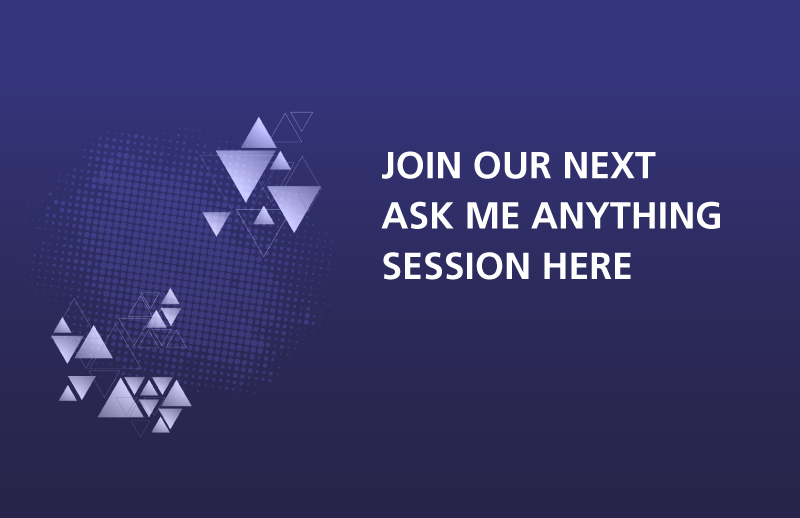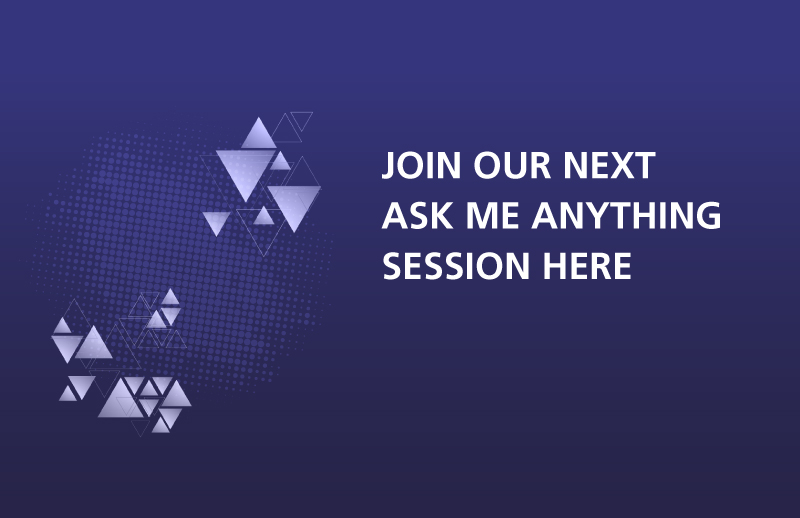AMA session in 3 minutes
Laïla von Alvensleben focuses on the three main things at MURAL.
One is nurturing company's culture that includes MURAL's values, employee collaboration and the human aspect of work. Then there's a technical aspect of collaboration which is not just about finding the tools and processes but also helping bring these remote best practices across the company. Finally, it's facilitation of workshops and virtual meeting design.
How did MURAL run team retreats during the pandemic?
We had two big company retreats during the past year. The first experiment we did was in August — it was to announce the series B round of funding to our employees.
Together with some other volunteers in the company we organized the MURAL World Tour. This was just about a three-hour journey with around 250 MURAListas. The whole plan was to meet at a Zoom 'airport', get into your airplane seats, and go to different destinations from mountains to islands, to outer space and eventually to planet MURAL.
I ordered a lot of props in advance — disco lights, sleeping masks, lip balm, fans, — and asked everyone to download a package of Zoom backgrounds. Once we were all together, it was actually really, really interesting to see people starting to get into their roles.
For example, I was a pilot, but we had Mark being an air traffic control person doing the sound effects. We had different employees doing the flight announcements, both in English and in Spanish. We would ask people to change their backgrounds at specific times of the journey. Every time we would change the destination we would ask people to put their sleeping masks on and then take them off again. They got really into it. It was kind of theatrical.
We had different activities in each destination - for instance, speed dating in the mountains where you had to meet people you've never met before at the company and put stamps in your passport for each meeting.
Then we created escape rooms in MURAL. This was to test people's knowledge of how to use our own tools. This was really fun. This was also done in teams. We had a Slack channel called #lost, which was for all the people who felt totally lost during this escape room, which was really funny. You'd just see these hundreds of comments of people asking for help. Then you'd have the volunteers running around, giving them tips. At the end of the journey, when we were in outer space, we had a concert from the MURAL band.
Half a year later we did another retreat and instead of three hours, we did three days. Now we had 400 MURAListers in the company by that time. We worked with a group of facilitators Abracademy. The idea was the company is going through a Renaissance and we built a MURAL maze people had to go through.
Out of this, we created a website that only MURAL team members could enter. During the first event we heard people say that they wanted choice, that they didn't want to be always in the same Zoom call the whole time. And we gave them a lot of choice. We had these crystal ball activities around four different themes, and you could pick your time zone and then eventually throughout your day you could pick which events to go to.
These are a lot of facilitators, external facilitators, MURAL volunteers, and there was everything from yoga, mindfulness, reflection, learning magic tricks, cabaret, we had DJs, we had cocktails. This was over three days. You can see that people could build their own schedule. We also had these 3D virtual worlds that people could go into as avatars and get to meet other people.
What metrics are you looking for to define success of these team building events?
That's a good question. Well, the first and second retreat had different objectives. The first one was really to celebrate. It was more a celebratory event to announce our funding and just to have fun and get to know each other a little bit as if we would have drinks somewhere together. The second one was really more about realigning as a company, being like, wait, we've grown so much in such a short time. We need to also do workshops with our teams, but also have fun. It was less of a celebration and more of, let's understand who we are again and redefine ourselves.
Once we had those objectives, at the end of the retreat, I always send out a survey to ask questions based on the objectives and see if we've reached those objectives as well. Then we obviously ask, overall, 'How was your experience?' That's how we measure. It's really with quantitative and qualitative data that people give us, but also already through Slack and conversations, you see so much in those three days. People were just saying, "Wow, this is out of this world."
We also thought about making these events in the second retreat family friendly so people could show up with their children. There were things for kids specifically because we knew kids were being homeschooled. Adding those little special touches and then seeing how people reacted to them, I think that was how we were measuring success.
As MURAL is going through the hypergrowth, what are the main growing pains or challenges that you are overcoming?
There were a lot of things that have been pains at some point. For example, the remote equipment — so we gave people stipends for work from home equipment at the start. Right now we are sending an employee engagement survey, we are sending one at the end of each quarter, so we've just sent one. Now everybody is set up for remote work. The new hires who come in get set up or they were set up from their previous employer if they were working. That is not a problem anymore, the equipment.
The onboarding was chaotic at first, but now it's a great experience. A lot of people tell us it's the best interviewing experience, one of the best onboarding experience. It depends on which team of course, because it can get really messy. Onboarding is getting better.
The real pain right now, I would say, is the culture because culture was one way when we were 60 or 30, and now we're 600 and something. Of course, there's so many new people with completely — they're also bringing parts of the culture wherever they were before. Culture is not static. It's always evolving, but that's really tricky because it's like, how do you explain to these people remotely, this is what MURAL's culture is like? Not just tell them but how do you make them feel it and go through it and experience it?
With this huge success of the virtual events, are you thinking about going back in-person, doing hybrids or doing both maybe in different times of the year?
That's such a good question. I think that we've seen that definitely the virtual events can work really well if they're well prepared and facilitated. Also, we understand the need and the difference of meeting people in-person is a completely different experience, it really bonds you in a different way. I think we could continue doing both. Right now we're just going to do virtual if it's a company-wide event.
When the pandemic was not as bad and people could go out again, there have been some small groups of people meeting in their local regions. I know some engineers had also an off-site in Florida a few months ago, and that went really well. Now there's so much uncertainty that I think the hardest part is just planning ahead of time. I think that we need to keep the virtual one anyway top of mind as a possibility.
What is the best way to onboard people who never worked in remote setting before?
For the recruiting, I'll answer as best as I can because I'm not any more involved specifically in the recruiting or the onboarding. Our people OPS team also has grown quite a lot. It used to be three of us and now we're, I don't know, 30 something, I think. We have a great team of recruiters. The interview process is always done on Zoom of course right now, and it was done before as well because we were already remote before.
We really can see also in the interview, how do people show up? Do they not show up? Are they comfortable with putting their cameras on and that kind of thing? Then as you're talking to them and asking about their previous experience, you can find out how comfortable they were with remote work or not, and how well they communicate.
When I worked at Hanno we gave a lot of importance on written communication. Our culture was very text-heavy. I would say at MURAL, that's not the case. We're not necessarily asking people to draft or write something long. There is a step of the interview process where you're asked to do something, to present something, but it's not a text-heavy exercise.
It's really, I think, as you're getting to speak to the person to find out more, you can figure out whether they're comfortable with remote or not. We also have people who didn't work remotely. Especially as soon as lockdown started some people maybe got fired from their previous job, or let go, and then they had to find a job when all the jobs were remote. We're very understanding that it's a challenge even for people, even for me who's been remote since 2013, it's been hard, the whole world situation.
We really try to help them when we're building, for example, writing a remote work playbook as well in the company. I have been slacking lately because I was busy with other projects, but sharing best practices for remote work. We have a channel in Slack also, which is just focused on remote work and helping people as much as we can. There's some things that were better than others at doing it, like the engineering team was much more ready for it than, for example, the sales team. It's practicing all the time, testing all the time, helping people out, supporting them. It wouldn't be a reason for not hiring somebody if they've never done it before.
With more companies going remote, what do you think is the role of the culture in helping companies like MURAL to stand out from the crowd and make sure that the best talent wants to work for you?
That's a massive question. It's super important, first of all, because people are not just going to work for money anymore, for, "Oh, this is close to my house." Now it's like you can literally work from anywhere, so you better pick a place that not only believe in their mission, their product, and their service but also in, you feel like you're connecting to the people.
I think the role of culture is going to become more and more important. Again, like I said, this whole Google way of doing things, like the Google campus, or the Facebook campus that would offer these great things, it's not totally possible anymore or maybe people are not that interested anymore. They're more looking into, "How can work adapt to my lifestyle rather than my lifestyle adapting to work?"
I think that with our virtual retreats as we talked about was like, "What if we did all these?" We're showing people that were experimental, we're showing people that we're a very creative team, that that is part of our culture, one of our values is experiment like an owner. Yes, you make mistakes, and it's okay, it's just part of the experimenting culture that we have.
We're not trying to just put ping pong tables that people can play games or things like that. It's more about understanding how-- I'm not saying that's the only thing that Google did, but there was a lot of talk within startups like, "Oh, we have pizza night in Google," sorry, "ping pong tables," whatever. It's like, "Great, but--"
.png?width=210&height=60&name=cropped-running-remote-main-logo%20(1).png)




